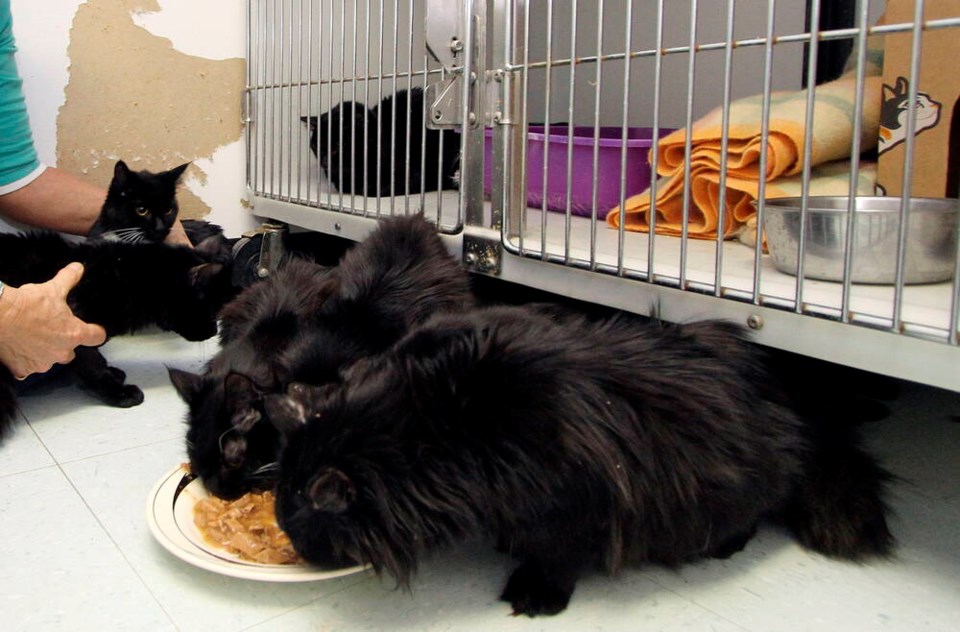This is what the Victoria Humane Society was afraid would happen.
All those pandemic pets, the COVID companions that stuck-at-home people bought last year? The tide has turned and some are flooding back.
Worse, there’s nowhere to put them — or, at least, nowhere to place the maladjusted ones.
And that’s why the non-profit group is looking for a benefactor with a spare acreage to house the hounds. If that sounds like a long shot, well, that just reflects the squeeze they’re in.
This story goes back to 2020, when people who would normally be working in downtown offices or snowbirding in Arizona found themselves yearning for furry friends. The thing was, demand outstripped supply, just like it did for toilet paper and hand sanitizer that spring.
This was true all over.
In Vancouver, the B.C. SPCA fielded 200 applications for a single puppy.
Backyard breeders charged thousands. Australian shelters charged adoption fees of up to $1,800.
“Fears over dog smuggling as lockdown puppy prices rise by up to 89 per cent,” warned the banner over a story by Britain’s Sky News.
Exacerbating the situation, outfits such as the humane society found the pet pipeline had been turned off. Remote B.C. communities that used to funnel cats and dogs to Vancouver Island were self-isolating, no people going in, no animals going out.
Yet, even while trying to deal with last year’s dearth of dogs, the society wondered what would happen when the world opened up again.
Sure enough, the organization is now being overwhelmed by people wanting to surrender pets. “We have more than 100 dogs and puppies in care right now,” says executive director Penny Stone. There are almost 200 cats and kittens.
The people who foster them are maxed out, so the society is having to turn away owners who want to hand in their animals. “This is the first time we have had to say ‘no’ and take wait lists,” Stone says.
The thing is, the pets aren’t necessarily being surrendered for the expected reasons. Yes, there are owners who, having returned to the office, are ditching dogs that no longer fit their lives.
Yes, there are those who simply can’t afford them (just like in the meltdown of 2008, when SPCA staff would arrive to find a dog tied to the railing and a box of kittens on the steps).
A much larger number of animals, though, are being turned in by people feeling crushed by the strain of the pandemic.
“It’s people who have been terribly affected by COVID,” Stone said. They find caring for a pet to be just one more psychological burden. “You would think having an animal would make it easier to cope.” No, for some, the opposite is true.
Also, many of the dogs have problems of their own — they are untrained, unsocialized. That’s a problem, because while there’s no shortage of foster homes for easy dogs (volunteers can’t even reply to all those applying to take in an eight-month-old golden retriever), it’s another story when Spot is older, anxious and comes with baggage. Send a dog like that to a foster home, it’s likely to be returned three days later.
That’s why the organization is looking for a place where volunteers can get pets to the point where foster homes will welcome them. “What we need is a facility where we can bring these dogs in and teach them that the world is a safe place,” says the humane society’s Marie Zirk.
Ideal would be an acreage with room for lots of dogs and overnight accommodation for humans. If that sounds like a big ask, well, there’s no harm putting it out there.
What else are they supposed to do? The animals keep coming. They just took in 14 dogs that, having been isolated, aren’t mean but are terrified of everything around them. Stone just picked up 53 cats and kittens from a remote community.
She’s getting dogs from wildfire refugees, including people burned out of their homes in Lytton.
With veterinarians and animal trainers slammed (Stone says finding a vet is as hard as finding a family physician), it’s not uncommon to see pets with health and behavioural issues.
If the people who want to turn them in get turned away, what will be Old Yeller’s fate?
This is what it looks like when the tide turns.


